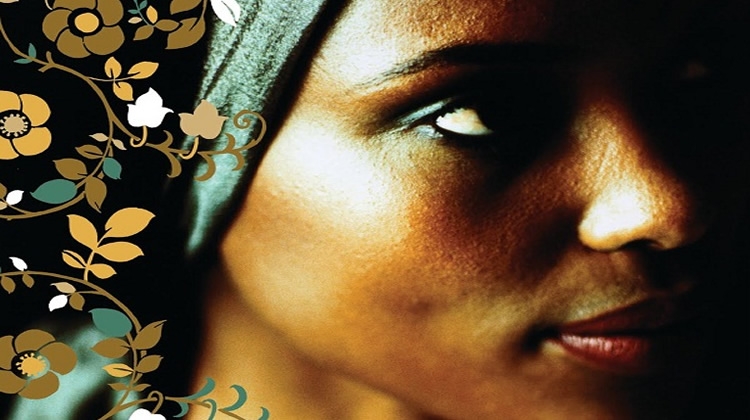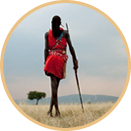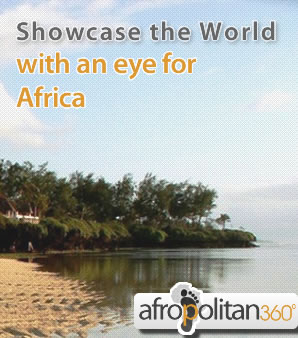
From a reinterpreted Heart of Darkness to a barstool in Congo, this is a list of Africa's best contemporary novels in 2012, as compiled by Ellah Wakatama Allfrey, deputy editor of Granta. Enjoy.
Lyrics Alley
Leila Aboulela (2010)
Set in mid-50s, pre-independence Sudan, Aboulela's third novel takes us on a journey to Egypt and postwar Britain as we follow the life of Nur, the cosmopolitan son of a powerful businessman, who finds his dreams dashed following an accident. This is also the story of the conflict between Nur's traditional mother and the city-bred Egyptian co-wife whose arrival threatens the stability of the family. Though set mostly in the world of the northern Sudanese, Aboulela's gentle, poetic prose is a perfect counterpoint to the time of turmoil and upheaval she chronicles.
The Memory of Love
Aminatta Forna (2010)
Forna's memoir, The Devil That Danced on the Water, was a daughter's search for the truth of a murdered father's last days, and for a country - Sierra Leone - lost to civil war. In this, her second novel, she takes the reader to Freetown in peacetime - in 1969 and the present day. An English psychologist, Adrian Lockheart, hears the confessions of a dying man, Elias Cole. What unfolds is an unforgettable love story, a tale of complicity, betrayal and trauma that perhaps does more to tell us about this bitter conflict - and to make that telling stick - than any work of non-fiction can.
Zoo City
Lauren Beukes (2010)
The winner of the 2011 Arthur C Clarke award, this urban fantasy-noir thriller merges visions of dystopia with faultless plotting and Shona cosmology, bringing the spirit possession of traditional religion to a near-future Johannesburg. Zinzi December finds things, even when she doesn't want to. When she's hired to find a missing teenage pop star, it's almost certain that her shavi (a compulsion or talent with a bitter cost) will bring disaster. There is rhyme and reason to this imagined future - and it's a believable and engrossing vision.
The Hairdresser of Harare
Tendai Huchu (2010)
This glorious book defies classification with its astute sociopolitical commentary nestling inside the appealing, often comic story of a young woman who will not accept defeat. With a light touch and real skill, Huchu takes us through the life-sapping economic realities of contemporary Harare via the story of Vimbai, the hairdresser, as she struggles to make a home for herself and her young son. She's lost a beloved brother to the diaspora and when a new (male) stylist joins the salon, it looks as if she will soon lose her best clients, maybe even her job.
Looking for Transwonderland
Noo Saro-Wiwa (2012)
With this memoir, Noo Saro-Wiwa, daughter of the murdered environmental and political activist Ken Saro-Wiwa, establishes herself as a pioneer in contemporary travel writing - Africa as seen by Africans. Travelling from the mayhem of Lagos across Nigeria, she brings family history and the sometimes conflicted eye of an African raised away from the motherland to look at this vast, fascinating land. Only one who calls the country home could write such an honest account of contemporary Nigeria.
Broken Glass
Alain Mabanckou (2009)
Iconoclastic, packed with literary and cultural references from across the globe, scatological humour and a biting wit, Mabanckou's writing demands a strong stomach. In this urban novel written from the heart of Africa (Congo), our narrator sits on a stool in a bar called Credit Gone West and scribbles the stories of the convicts, conmen, cuckolds and the dispossessed who drink beside him. All the while, he nurses his own secret heartbreak, disappointment and thwarted ambition. Mabanckou is one of the continent's greatest writers and he's getting better with each book.
African Metropolitan Architecture
David Adjaye (2011)
With a mix of photographs and text about buildings, and the spaces and lives around them, this is an arresting visual introduction to cities across the continent. Part of a seven-volume work, African Metropolitan Architecture features 53 conurbations grouped by terrain. Focusing on how cities grow - the colonial legacy, the natural environment, the social and political structures supporting them - this is emphatically not a coffee-table book but, rather, a learned journey into the vibrant, beating heart of contemporary African life.
Beneath the Lion's Gaze
Maaza Mengiste (2010)
Set in the years of the red terror (the period of upheaval following the violent communist revolution in Ethiopia) in the 1970s, Mengiste's novel follows the lives of two brothers and their father: Dawit, the student revolutionary, his elder brother, Yonas, who seeks solace in tradition and prayer, and their father, Hailu, a surgeon who is summoned to save the life of a young woman who has been horrifically tortured by the secret police. His task is to heal her just enough to send her back to prison. The choices he makes will change the course of the family's life.
Heart of Darkness
David Zane Mairowitz, Joseph Conrad and Catherine Anyango (2010)
What is lost in the adaptation of the text of Conrad's novel is more than redeemed by the illustrations of Catherine Anyango, an artist of Swedish and Kenyan parentage. The exquisitely rendered drawings are dark and often harrowing, articulating the moral dilemmas of colonialism. Whether or not one is a fan of the original, the intelligence and political awareness of this endeavour - and of Anyango's illustrations in particular - are a brilliant example of the power of the imagination in forging new interpretations of stories we all thought we knew so well.
Mama Miti
Donna Jo Napoli/Kadir Nelson (2010)
In this beautifully illustrated tribute to the Kenyan Nobel laureate and environmentalist, the late Wangari Maathai, Napoli and Nelson provide modern morality tales of our relationship with the natural world. In poetic prose, the book tells of women who bring their problems to Mama Miti: we have no firewood; the cows are sick; the water is polluted. Instead of advising how to get NGO grants, Mama Miti reveals a bush whose leaves can heal livestock, a species of tree whose roots will purify the water and another that will meet their needs for fuel.
Back









 You want to showcase?
You want to showcase?